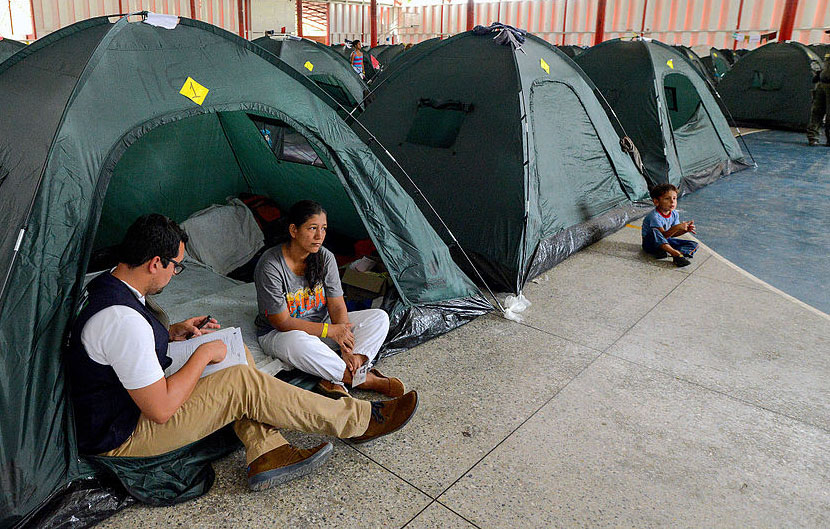New Study on Venezuelan Immigrants From Assistant Professor Salas-Wright Challenges Prevailing Cultural Stress Theory
February 27, 2019

Contrary to researchers’ expectations, migration to a similar environment causes more stress than migration to a new cultural context.
Venezuela’s growing political, economic and health crisis shines a much-needed spotlight on the serious challenges faced by migrants. The Office of the United Nations High Commissioner for Refugees and the UN International Organization for Migration recently reported a staggering three million refugees and migrants from Venezuela worldwide, with a majority fleeing to neighboring Colombia, a country with very limited experience with immigration.
Up to this point, the prevailing migration theory suggests that similarity between immigrants’ cultures of origin and the society where they settle should predict lower levels of cultural stress. However, a first-of-its-kind study published in the International Journal of Intercultural Relations and co-authored by Dr. Christopher P. Salas-Wright from BU’s School of Social Work, says that, while culturally similar, life in Colombia may be causing more stress for Venezuelan immigrants than life in a culturally different country like the United States.
“Venezuelans who immigrated to Colombia reported significantly greater discrimination, a worse context of reception, and more depressive symptoms compared to their counterparts in the U.S.,” said Salas-Wright. The results surprised the entire research team.
The study, Cultural Stress and Psychological Symptoms in Recent Venezuelan Immigrants to the United States and Colombia, surveyed 647 Venezuelan immigrants (who settled mainly in Miami, Florida, and Bogotá, Colombia) to assess perceived discrimination, negative context of reception, depressive symptoms, and anxiety symptoms.
According to the authors, findings suggest important revisions to cultural stress theory
The specific context in which immigrants are settling is a critical factor in predicting the extent of cultural stress. The presence of an earlier wave of affluent Venezuelan professionals, and the unique features of Miami as a multilingual and international city, likely changed the expectations that people in South Florida directed toward the newest wave of Latin American immigrants.
The educational level of the immigrants themselves is critical. The fact that nearly half of the Florida sample had graduated college, while more than a third of the Colombia sample had completed high school or less, may be responsible for the more favorable reception in Florida.
The research has implications for intervention initiatives focusing on both Venezuelan immigrants and on the U.S. and Colombian immigration programs
Individual: The U.S. can adapt a current program — developed by Smokowski and Bacallao in 2011 that helps immigrant parents reconcile their cultural heritage with U.S. culture — for Venezuelan immigrants to help address issues of downward economic mobility and posttraumatic stress resulting from exposure to violence in Venezuela.
Community-wide: Reduce discrimination and negative reception through education about the contributions that immigrants make and the importance of accepting and supporting them; and through initiatives to help reduce perceived symbolic threat (i.e., “They” are taking over our country).
The authors concluded: “The present study has broken new ground and has hopefully begun a line of research on a new immigrant group. We hope that our work will inspire additional efforts to study Venezuelan immigrants and to determine the extent to which they are similar to, and different from, other immigrant groups in the U.S., Colombia, and elsewhere.”
The study was co-authored by Seth J. Schwartz (University of Miami); Augusto Pérez-Gómez (Corporación Nuevos Rumbos); Juliana Mejía-Trujillo (Corporación Nuevos Rumbos); Eric C. Brown (University of Miami); Pablo Montero-Zamora (University of Miami); Alan Meca (Old Dominion); Carolina Scaramutti (University of Miami); Mary H. Soares (University of Miami); Saskia R. Vos (University of Miami); Nino Javakhishvili (Ilia State University); and Julia Dickson-Gomez (Medical College of Wisconsin).